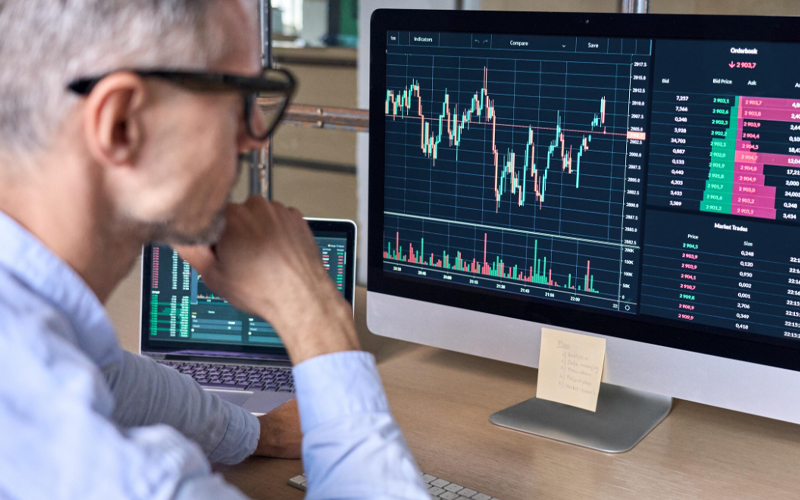Trade surveillance is an essential requirement of financial regulations worldwide. It involves monitoring financial data to detect potentially abusive trading, identify market manipulation, and prevent fraud. The key purpose of trade surveillance compliance is to preserve market integrity and protect investors.
Traditionally, trade surveillance systems involve a simple web application or standalone software to scan an organisation’s trade data, which can be made available to regulators on demand.
However, the post-pandemic period has seen a significant rise in surveillance gaps arising from multiple factors, including market volatility, increased trading volumes, digital trading channels, and continually evolving regulations. To address these gaps effectively, businesses are increasingly relying on BPO services for trade surveillance, which offer scalable and efficient solutions tailored to meet diverse compliance needs.
Businesses are now adopting a more proactive approach to trade surveillance and investing in cutting-edge solutions to stay ahead of emerging compliance needs. In an increasingly interconnected and competitive financial ecosystem, trade surveillance is not merely a security requirement but a strategic tool for firms to build trust and provide better service.
Future trends in trade surveillance
The global trade surveillance market was valued at $888.42 million in 2021. It is projected to grow at a CAGR of 13.9% in this decade, reaching $2866.36 million by 2030. The key drivers of this exponential growth are –
- The exponential growth in trading volumes, which increases the chances of market abuse and manipulation manifold
- The proliferation of digital transaction modalities and hybrid work environments, which reduces visibility into trading processes
- Newer regulations such as MAR and MiFID II that demand mandatory regulatory compliance for registered firms
- The availability of new-age technology and cloud systems that can enhance existing trade surveillance systems and scale with trading volumes
- The explosion of data generated by newer communication channels, that can be used to train surveillance tools
- The emergence of RegTech as a Service (RaaS), which simplifies the adoption and implementation of regulatory technology (RegTech) in organisations
Based on these conditions and emerging patterns in the trade surveillance space, here are some future trends to watch out for:
- Increased use of AI/ML-powered surveillance tools
- Growth of cloud-based surveillance platforms
- Integration of trade surveillance with other risk functions
- Application of behavioural analytics
The use of artificial intelligence (AI) and machine learning (ML) in trade surveillance will enable firms to analyse huge volumes of data, automate anomaly detection, decrease false positives, and stay adaptable in a rapidly changing market. BPO services for trade surveillance often incorporate these technologies to offer scalable, efficient solutions.
Cloud-based trade surveillance platforms will evolve due to the convenience, scalability, and real-time processing capabilities that they afford.
Banks and financial institutions will integrate trade surveillance with other types of risk management, such as credit risk and liquidity risk, to obtain a holistic picture of their risk exposure.
Traditional surveillance tools operate on rules-based algorithms and cannot detect sophisticated forms of market abuse. Behavioural analytics will enable surveillance teams to identify deviant trading behaviour, such as abnormal spikes in trading volumes and altered trading patterns.
Emerging trade surveillance technologies
Technology will be a game-changer in the trade surveillance industry. Forward-thinking organisations are already leveraging technology-enabled surveillance systems to ensure compliance with changing regulations and navigate increasingly complex financial markets.
Below are the key technologies that will significantly enhance trade surveillance capabilities:
- AI and ML
- Natural Language Processing (NLP)
- Visualisation tools
- Blockchain technology
- Cloud computing
- RegTech
AI and ML are integral to automated surveillance systems. AI/ML algorithms can analyse large datasets from multiple sources, such as market data, social media, and news feeds, to identify deviant trading patterns or anomalies in real-time.
This enables firms to undertake real-time monitoring, detect and deter potential violations, and send out timely alerts for investigation.
Additionally, AI/ML tools can prove vital in risk scoring based on the timing, volume, and frequency of trading activity. A dependable trade score can help analysts prioritise the more suspicious cases.
NLP is crucial in interpreting and analysing unstructured data sources, such as social media posts, news articles, and trader communication, to gauge market sentiment and detect potential insider trading.
Visualisation tools, including heat maps, area charts, and scatter plots, facilitate easy identification of trading patterns and the anomalies therein. They are also helpful in creating interactive dashboards that display the key metrics for efficient trade surveillance.
Blockchain technology is transforming trade finance by offering better visibility into digital trading transactions and helping to create a decentralised and tamper-proof record of trade-related activities.
Cloud computing solutions provide scalable and flexible trade surveillance platforms and cost-effective data storage capacities.
In the future, cloud-based systems will also facilitate the much-needed collaboration among financial institutions and regulators. This will promote information sharing among all stakeholders and enable them to operate with collective insights.
Moreover, increased collaboration will ensure that organisations stay updated about changes and alterations in trade surveillance compliance regulations. Outsourcing these functions to BPO services for trade surveillance can further enhance efficiency and reduce costs.
RegTech platforms provide integrated solutions for collecting, processing, and analysing data from disparate systems, facilitating big data analytics and simplifying compliance processes.
In the future, an increasing number of firms will leverage RegTech to streamline trade surveillance compliance, automate reporting, and navigate complex regulations.
How can Infosys BPM help?
Infosys BPM Compliance practice helps banks and financial institutions transform their end-to-end trade surveillance processes with cutting-edge technology-enabled solutions. Our BPO services for trade surveillance ensure seamless integration of advanced tools and technologies into your existing systems, enabling comprehensive monitoring and compliance with evolving regulations. We partner with FinTech and RegTech providers to deliver bespoke compliance solutions to banks and financial organisations.
Know more about Infosys BPM’s financial services compliance offerings.








